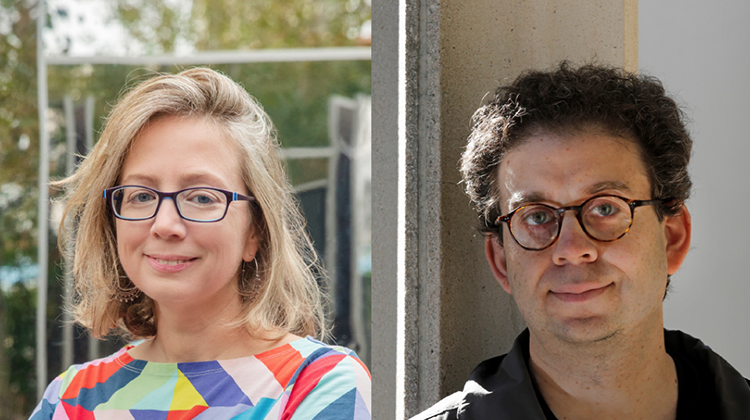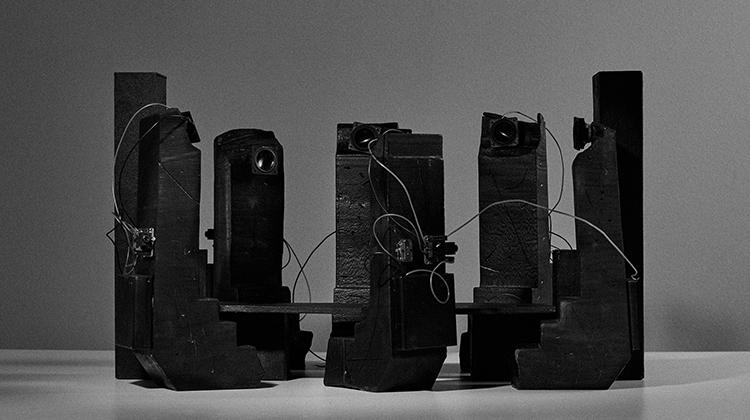Special Subject: Architecture Studies — X Machine
8/24/23: New class meeting time and room: R 10-12 in room 10-485. Units changed to 2-0-6.
Note: this is an H1 (half-term) subject.
In an AI-enhanced future, humans will become better at everything. The machine targets real-world artificial intelligence challenges designed to help address issues related to climate change, and urbanization in cities.
X Machine is an accelerator workshop designed to bring computer science and architecture together to create the most innovative and impactful technology solutions. The program's aim is to provide mentorship and technical support, with a focus on the problem statement and early-stage technology design ideation.
Special Subject: Architecture Studies — Eyes in the Sky: Drones in the Built Environment
Drones are providing us with new ways to map, monitor, and measure our changing landscape. Advances in digital image processing enable one to go from flying a drone to working with accurate maps and 3D models in a matter of hours. This course examines the applications of drones in which the aerial perspective can be integrated into architecture, engineering and construction practice. In this course, students will gain hands-on experience with drone vehicles, sensors, image processing software and applications. Students will learn how to use drones to help them better understand our changing environment. With the proliferation of drones there are increasing opportunities to use drones for scientific remote sensing data acquisition and applications.
This course focuses on understanding the fundamentals behind acquiring imagery data with drone-based cameras (e.g. multi-spectral and thermal) and processing the data for various applications. Students will also get to know the fundamentals of open source and proprietary software packages as they relate to UAV technology, drone operations, flight planning and data collection and management as well as how to integrate resulting data into other software tools such as GIS, BEM and Python libraries. Recognizing the critical role that AI will play in defining the future international competition, many countries now regard AI as a national priority. The United States launched the American Artificial Intelligence Initiative in 2019 with the mission to promote its leadership in AI research, development, and application. One of the eight national strategies identified in this initiative is to “provide education and training opportunities to prepare the American workforce for the new era of AI”.
In this course, students will go through aerial data processing, mainly data collected from drones, including working with Orthomosaic, Digital Terrain models (DTMs), Digital Surface Models (DSMs), Point Cloud, and 3D mesh modeling. This course will also provide technical and applied knowledge on using drones for building assessment through aerial thermography and the use of UAVs in various applications. The course will also cover the technical foundation of enhanced data processing using AI, including image segmentation and object identification, and feature extraction basics using computer vision techniques in Python. Upon completion of this course, students will have theoretical and applied and technical knowledge that will aid them to use UAVs in various applications. This course is the extended version of Eyes in The Sky Workshop that was offered during IAP 2022, which resulted in 2D mapping of Briggs field and 3D modelling of Simmons Hall at MIT campus.
Preparation for SMArchS Thesis
Note: Computation students now register for 4.588 instead of 4.288
Students select thesis topic, define method of approach, and prepare thesis proposal for SMArchS degree. Faculty supervision on an individual or group basis. Intended for SMArchS program students prior to registration for 4.THG.
Contemporary Urbanism Proseminar: Theory and Representation
Critical introduction to key contemporary positions in urbanism to the ends of researching, representing, and designing territories that respond to the challenges of the 21st century. Provides an overview of contemporary urban issues, situates them in relation to a genealogy of urban precedents, and constructs a theoretical framework that engages the allied fields of architecture, landscape architecture, political ecology, geography, territorial planning, and environmental humanities. Comprised of three sections, first section articulates a framework on the urban as both process and form, shifting the emphasis from city to territory. Second section engages a series of related urban debates, such as density/sprawl, growth/shrinkage, and codes/exception. Third section calls upon urban agency in the age of environment through the object of infrastructures of trash, water, oil, and food.
4.228 Syllabus (MIT Certificate Protected)
Professional Practice
Gives a critical orientation towards a career in architectural practice. Uses historical and current examples to illustrate the legal, ethical and management concepts underlying the practice of architecture. Emphasis on facilitating design excellence and strengthening connections between the profession and academia.
Architecture Studies Colloquium
Aims to create a discourse across the various SMArchS discipline groups that reflects current Institute-wide initiatives; introduce SMarchS students to the distinct perspective of the different SMarchS discipline groups; and provide a forum for debate and discussion in which the SMarchS cohort can explore, develop and share ideas. Engages with interdisciplinary thinking, research, and innovation that is characteristic of MIT's culture and can form a basis for their future work.
Positions: Cultivating Critical Practice
Through formal analysis and discussion of historical and theoretical texts, seminar produces a map of contemporary architectural practice. Examines six pairs of themes in terms of their recent history: city and global economy, urban plan and map of operations, program and performance, drawing and scripting, image and surface, and utopia and projection.
Urban Design Studio: Rising Phoenix: Intergenerational Housing + Autonomous Universal Access in America's Hottest City
This joint urban studio will focus on one of the most urgent climate, environmental, and urban challenges we face today: heat and urban growth.
Combining research and design, the studio presents a pedagogical model that brings together designers - SMArchS Urbanism (ARCH) and planners (DUSP students) to work together around a shared urban challenge where professional lines are blurred.
The City of Phoenix, and its Office of Heat Response and Mitigation, have asked us to consider three wicked problems facing sunbelt cities as they continue to rapidly grow: affordable infill housing, heat island effects,
and better access to multiple modes of transportation. Students will conduct group planning research as well as site analysis and urban design to comprehensively innovate around the nexus of urban heat--intergenerational housing--autonomous mobility
and universal access design. The goal is to create a new set of block and streetscape typologies for cooler, intergenerational, autonomous living in Phoenix’s South Central neighborhoods.




